Bell Potter: 2 surprising defensive picks – and 2 to avoid
Investors have called on Telstra (ASX: TLS) to protect them against the chaos caused by Donald Trump - and the telco has answered with a whopping total return of 24.31% so far this year.
The stock, along with other defensive mainstays like Transurban (ASX: TCL), Woolworths (ASX: WOW) and Coles (ASX: COL), has re-rated sharply.
So much so that Bell Potter now believes the overall ASX large-cap defensive sector is looking stretched — and that investors need to rethink their low-volatility stock positioning, especially as the tide in markets begins to turn.
“With Trump-era tariff concerns and the threat of a global recession easing, investors are increasingly willing to look through near-term policy noise and add growth exposure back into their portfolios,” write analysts Paul Basha and Rob Crookston.
In their latest equity strategy, the broker argues it’s time to be highly selective — because while many defensives are now priced for perfection, a few overlooked names still offer better risk-reward potential.
The rotation is underway
Defensive stocks typically outperform in downturns, and that’s been the case in 2025, as investors flocked to safety. That is, until Trump announced a pause on reciprocal tariffs in April, just days after his Liberation Day salvo threatening to tax every country and territory, including those occupied by penguins.
As macro conditions improve and risk appetite returns, history suggests that defensives begin to lag the broader market within about three months of a recovery phase, as shown below.
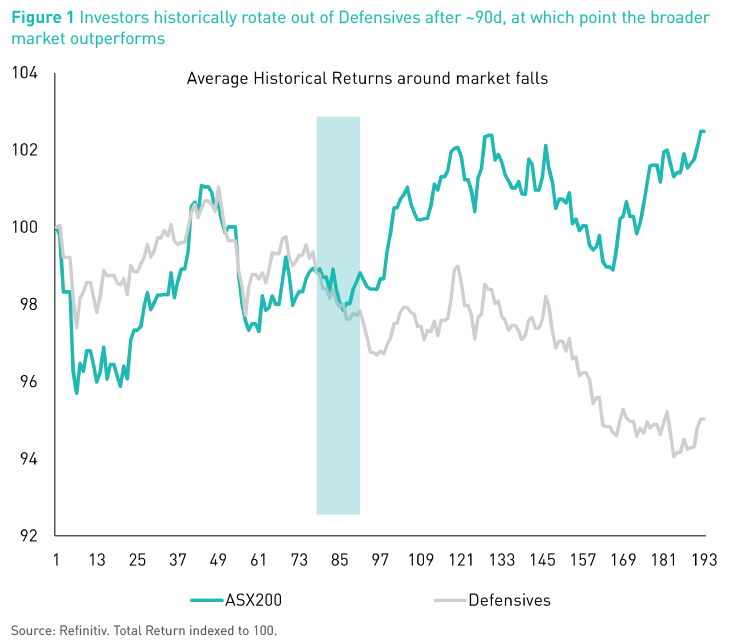
But that doesn’t mean investors should dump all their defensive shares.
“A Trump presidency carries unpredictability, and the likelihood of near-term volatility during ongoing policy negotiations makes some portfolio protection necessary,” write Basha and Crookston.
“We are at the crossroads currently. Our base case is for the broader ASX market to outperform defensives from here.”
2 beaten-down defensives offering upside
For investors, the challenge is in finding value and avoiding the temptation to chase momentum trades within the ASX defensive space. On that front, Bell Potter has surfaced two very interesting ideas.
#1. Amcor (ASX: AMC) – A “Berry” smart deal, at a bargain price
Amcor’s merger with U.S. packaging group Berry Global is a game changer, the broker reckons.
The deal expands Amcor’s footprint in resilient segments like home & personal care (HPC) and pharmaceuticals, boosts its North American presence, and unlocks approximately $590 million in cost synergies, 80% of which is expected within two years.
“We have a positive view on Amcor. The current valuation appears cheap, with the potential upside from the Berry Global merger outweighing the execution risks,” the analysts said.
Post-merger, the combined business presents a less cyclical profile, largely due to the increased contribution from the HPC segment, which now accounts for 24% of revenue and is typically more stable than food and beverage packaging.
Bell expects Amcor to deliver double-digit EPS growth, rapid deleveraging, and ROE above 25% in FY26 and FY27. Yet the stock trades at just 11x FY26 P/E, or roughly 30% below its long-run average.
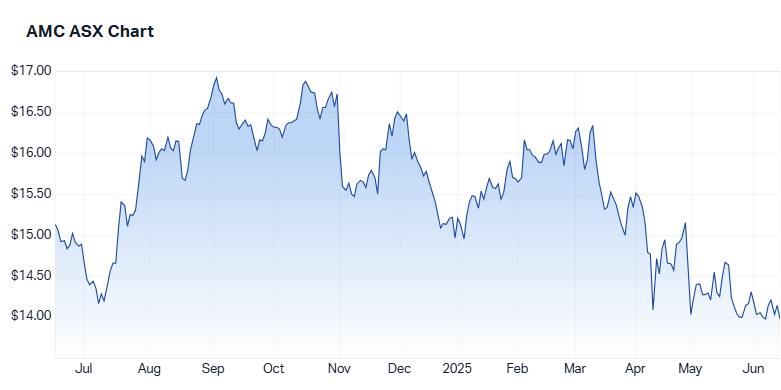
#2. Treasury Wine Estates (ASX: TWE) – The curveball in your defensive playbook
A wine producer may not traditionally be thought of as a defensive asset. But with daily fanfare out of the White House, that might soon change for some - especially the affluent in China!
TWE has been pummelled nearly 35% over the past 12 months after multiple earnings downgrades, largely due to soft U.S. demand for mid-tier wines. But Bell Potter believes the market is being too pessimistic.
“The Australian Country of Origin wines are rapidly helping China reclaim its status as Australia’s number one wine export market by value and solidifying Penfolds’ role as a key profit engine for the group,” write Basha and Crookston.
With Chinese tariffs lifted, Penfolds is powering ahead in Asia and now accounts for a growing share of group profits. Bell sees that as a major earnings driver — and one less tied to economic cycles.
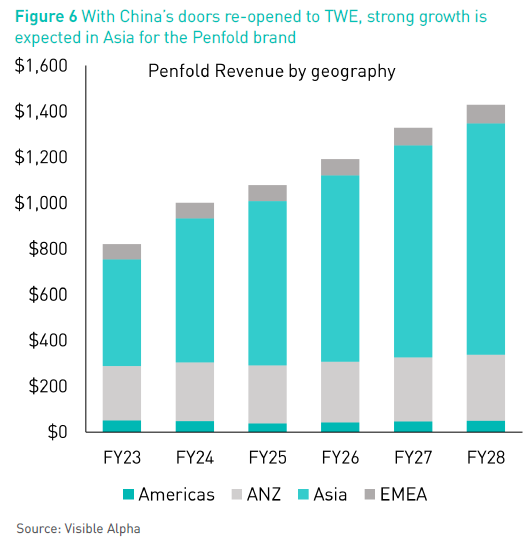
Bell believes the high-margin part of TWE’s business can outweigh the negatives that the market remains laser-focused on. Valuations are undemanding: FY26 P/E of 13x, FY27 P/E of 11x, and a partially franked dividend yield of 5.3% (FY26) and 6.1% (FY27) all point to attractive entry points.
“We think there is an opportunity to buy TWE at depressed valuations, with negativity around this stock very high," they said.
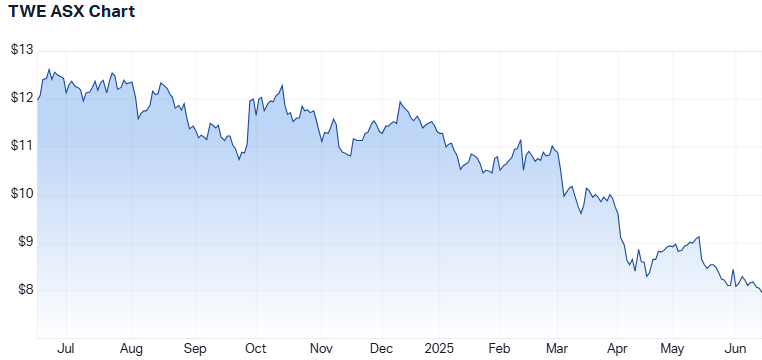
2 stocks to avoid (for now)
Defensive stocks, more than any other, shouldn’t be masquerading as growth companies or paying bond-like income.
Yet that’s exactly what’s happening in parts of the ASX’s defensive universe - and Bell Potter has named some of the worst offenders.
#1 - Telstra (ASX: TLS ) – A great business, but too richly priced
Telstra’s long-term strategy is solid. Its “Connected Future 30” roadmap targets mid-single-digit earnings growth, backed by network investments and digital transformation.
But after its ferocious rally, Bell Potter says the stock is no longer attractive on valuation grounds.
“Telstra is a high-quality business, but we see it as fully valued trading at 22.7x 12MF P/E. We do not think this is a stock that will re-rate materially higher above what has already occurred this year," write Basha and Crookston.
With a FY26 dividend yield of 4.2% - similar to a bond coupon - it also raises questions around the equity risk premium from the telco's stock.
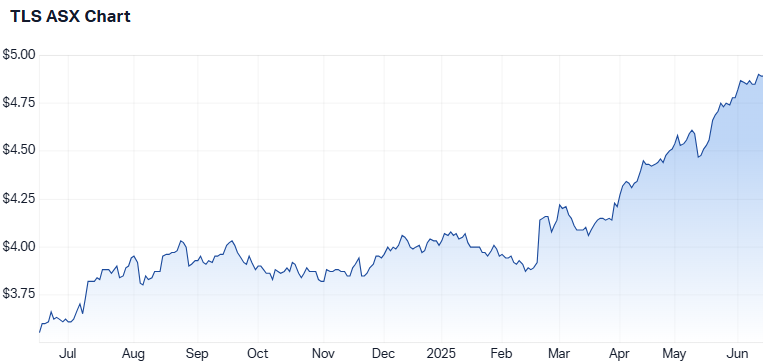
#2. Transurban (ASX: TCL) – A diminishing income edge
Transurban has long been a yield favourite, but it's been too richly bid up. Bell Potter says the stock has decoupled from fundamentals, with its dividend yield now falling below 5%, while peers offer far more compelling income.
“We recently removed TCL from our Australian equity large-cap panel due to its strong performance this year and its yield below 5%, and continue to recommend taking profits and rotating out into other defensives," the analysts wrote.
While APA Group (7.0%), Atlas Arteria (8.2%) and Aurizon (6.9%) all offer attractive yields, Bell continues to favour APA as the best alternative among the bond proxies.
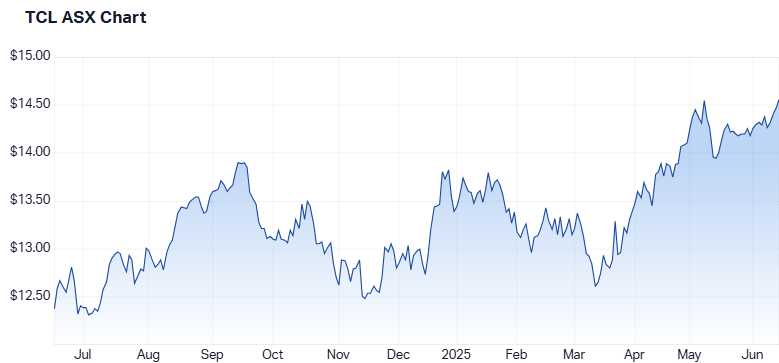
3 topics
4 stocks mentioned

